How Does the Probate Administration Process Work in Minnesota?
Without the assistance of an experienced probate lawyer, successfully completing the probate administration process in Minnesota can be extremely difficult. During the probate administration process, a decedent’s assets are distributed according to the decedent’s estate planning documents (generally a will) and Minnesota state law. Some of the assets are used to pay for any debts and taxes the decedent left behind and the remaining assets are distributed to the decedent’s heirs and beneficiaries.
What Are the Steps of the Probate Administration Process in Minnesota?
The timeline for the probate administration process varies. In some cases, it can take as little as a few months with minimal court involvement. In other instances, it can take years. How long the probate administration process takes depends on the complexity of the decedent’s estate and the number of disputes that occur during the process. The probate administration process is completed for most estates within a year.
The following are the steps that must be taken to complete the probate administration process in Minnesota:
- File a Petition – In many cases, probate is initiated within a few months of the person’s death. The probate administration process begins when a petition is filed with the probate court.
- Appoint Personal Representative – After a petition is filed with the probate court, the court will appoint a personal representative. If the decedent had a will, the court will usually just appoint the personal representative named in the decedent’s will. However, if the decedent did not have a will, or there wasn’t a personal representative named in the will, the court will appoint a personal representative based on Minnesota state law. Personal representatives who were not named in a decedent’s will are sometimes referred to as personal representatives or administrators.
- File and Prove Will – If the decedent had a will and it has not already been filed with the court, it will need to be filed with the court and proven. Proving a will is just a way of ensuring that it is valid. To prove a will, you must provide the probate court with a new sworn statement signed by a witness, a self-proving affidavit, or the live testimony of a witness.
- Final Inventory and Accounting – Preparing an inventory during the probate process involves inventorying the decedent’s assets. This includes estimating the value of each asset as of the date of death, as well as determining the way in which each asset is owned. Once the inventory is completed, it must be filed with the probate court. A Final accounting involves filing a form with the court that summarizes any financial changes that occurred between the filing of the inventory. A final accounting will include a list of assets from the inventory, a list of any assets in the inventory that were sold, a list of any assets in the inventory that were distributed to beneficiaries, and a list of total funds received and disbursements involving assets listed in the inventory, as well as the total assets on hand yet to be distributed.
- Handle Debts, Taxes, and Disputes – This step involves the personal representative paying any debts or taxes owed and resolving any disputes related to the estate. The personal representative must also wait until after the deadline for creditor claims has passed before moving on to the next step in the probate administration process.
- Tax Filings and Implications – Handling taxes will involve completing tax filings for the decedent and the decedent’s estate. For federal income tax purposes, a deceased person and their estate are considered separate legal entities. That means that you may need to file a federal income tax return for the estate. If so, you would use Form 1041 (U.S. Tax Return for Estates and Trusts) to do that. Similarly, in Minnesota, for state income tax purposes, a deceased person and their estate are also considered separate legal entities. That means that you may need to file a state income tax return for the estate. If so, you would use Form M2 (Minnesota Income Tax Return for Estates and Trusts) to do that. Other tax forms you need to file include but are not limited to a Final Form 1040 (Federal Individual Income Tax Return), Form M1 (Minnesota Individual Income Tax Return), and Form M23 (Claim for a Refund Due a Deceased Taxpayer).
- Distribute Assets to Beneficiaries and Heirs – This is the final step of the probate administration process. It involves distributing assets to heirs and beneficiaries (usually according to the decedent’s will if they had one or according to Minnesota state law if the decedent did not have a will) and closing the estate.
Contact Our Probate Attorneys in Eagan, Minnesota to Schedule an Initial Consultation Today
Our probate lawyers at Kennedy & Ruhsam Law Offices, P.A. have more than 75 years of combined legal experience helping clients in Eagan, Cannon Falls, and throughout Minnesota successfully resolve their probate issues. Our legal team can explain the steps of the probate process as it relates to your situation and help you protect your rights throughout the probate administration process.
Our attorneys’ top priority is taking the legal burden of navigating the probate administration process off your shoulders. We have a long history of helping clients complete the probate process and secure the most favorable outcome possible for their situation.
Our team of probate lawyers offers several benefits to clients, including:
- Experience with both taxable and non-taxable estates
- The ability to act as an administrator or Personal Representative of a decedent’s estate
- Experience handling major asset sales, business succession, strained relationships among heirs, and more
- We can represent a probate estate, an heir who needs to ensure a fair distribution of assets, a fiduciary (personal representative or trustee), and anyone with valid reasons to defend or contest the validity of estate documents (such as a will)
- Our attorneys can litigate breaches of fiduciary duty
- We can prepare and review estate audits, estate tax returns (Form 706), fiduciary accounting, and estate income tax returns (Form 1041)
- Our legal team can assist existing Personal Representatives with any aspect of estate administration
To learn more about Kennedy & Ruhsam Law Offices, P.A., and why we’re considered one of the premiere probate law firms in Minnesota, read our clients’ reviews.
If you are an heir or Personal Representative who needs help with the probate administration process, call our experienced probate attorneys in Eagan at (651) 369-7749 or contact us online today to discuss your situation, needs, and options.


